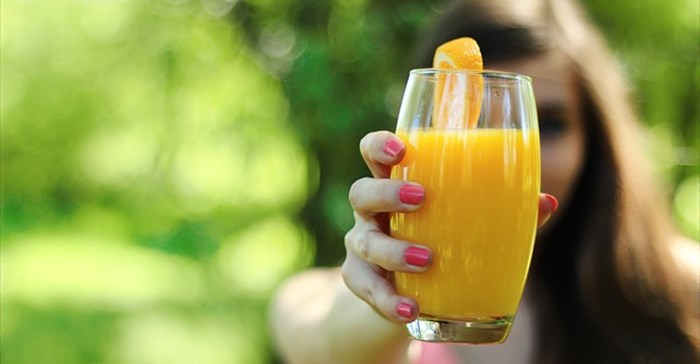
Related
Top stories





Marketing & MediaWarner Bros. was “nice to have” but not at any price, says Netflix
Karabo Ledwaba 2 days

More news

Logistics & Transport
Maersk reroutes sailings around Africa amid Red Sea constraints


















This is according to Dr Cindy Hunlun, who did the first investigative study of its kind in South Africa on the content and health value of locally produced orange juice. Dr Hunlun was awarded a doctorate in Food Science on this subject by Stellenbosch University (SU) in March.
Dr Hunlun worked in the juice industry for five years before being appointed as a lecturer at the Cape Peninsula University of Technology (CPUT) and thereafter starting work on her doctorate. Her supervisor was Dr Gunnar Sigge of the SU Department of Food Science. He was assisted by Dr Dalene de Beer and Prof Jessy van Wyk.
According to Dr Sigge, quite a lot of work has been done in the agricultural industry on the cultivation and packaging of citrus fruit, but local research into its health value has been minimal. As much as two million tons of oranges are harvested annually for the export market and local consumption. Some of these are also processed into value-added products, such as orange juice.
As part of her research, Dr Hunlun carefully investigated the chemical and phenolic content (which influences nutritional value) of three orange varieties that are cultivated on a large scale in South Africa. These are the varieties Mandarin, Navel, and Valencia. She also compared the content of frozen orange concentrate, the juice which is eventually made from it, and freshly squeezed juice. The antioxidant levels, which are a measure of good health value, were also ascertained for each.
She collected orange juice samples from two cultivation areas (the Western and Eastern Cape) over three seasons. It was analysed to ascertain what influence variety, seasonality and cultivation area can have on fruit content. The way in which the fruit was handled after harvesting can also have an influence. Dr Hunlun found, among other things, that the antioxidant levels of Eastern Cape oranges are higher than that of fruit produced in the Western Cape and that it, therefore, has more nutritional value. These aspects are also higher in locally produced Navel and Valencia oranges than in Mandarins.
Most orange juices in South African shops are made from concentrate which is frozen and then sold to juice producers. Dr Hunlun found that such juice had appreciably less health value than a glass of freshly squeezed juice. The freshly squeezed option enjoyed higher phenolic levels and contained more antioxidants than concentrate versions. “If you are in search of the maximum amount of health value in a glass of orange juice, it is best to drink freshly squeezed juice,” Dr Hunlun advises.
In addition, it was found that the health value of orange juice made from frozen concentrate is also affected by the extent to which it is diluted with the juice of other fruits. The formulation of juice is determined by legislation, according to which the juice of a specific fruit type (like orange) may be diluted with the juice of another (for example apple, pear or grape), but may still be sold as the original 100% orange juice blend.
“In the process, however, this drink loses many of the healthy characteristics which consumers assume are part of the juice made from a specific kind of fruit,” says Dr Hunlun. She, therefore, believes that legislation should change to protect consumers. This is because not everyone sufficiently understands how to read and interpret the product labels on which dilution is indicated.